News
-
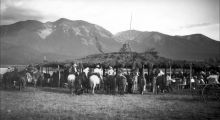
Indigenous stories reveal the science of the world around us
March 22, 2022
Indigenous stories hold clues to hydrological and geographical features, providing insights into the science of the world around us. Dr. Shandin Pete, assistant professor of teaching in UBC’s department of earth, ocean and atmospheric sciences, investigated a story that may have helped his… read more
-
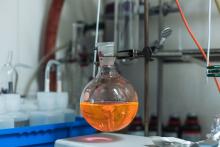
A quantum computer could design your next smartphone
March 14, 2022
Canadian researchers are using quantum computing simulations to accurately predict the colour of light emitted from molecules that produce the colours we see in the latest smartphones, tablets and TV screens. Designing complex molecules for electronics and pharmaceuticals is beyond the… read more
-
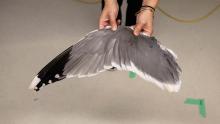
Discovering the key to birds’ agility could improve drone design
March 9, 2022
While it had been assumed that unstable gliding was the key to agility in bird flight, a collaboration between aerospace engineers at the University of Michigan and biologists at the University of British Columbia revealed that stability also plays a role. The discovery could lead to the design of… read more
-

FOCUS: A new digital magazine from UBC Science
February 22, 2022
Message from Dean Meigan AronsonI’m pleased to present the inaugural issue of FOCUS—a new, thematic approach to exploring collaborative research and intellectual connections across and beyond UBC Science. The importance of fundamental research oriented toward solving complex challenges… read more
-

Creating universal blood-type organs for transplant
February 16, 2022
A new study by Canadian scientists has proven it's possible to convert blood type safely in donor organs intended for transplantation. The proof of concept finding—published in Science Translational Medicine by researchers at the Latner Thoracic Surgery Research Laboratories, Toronto’s… read more
-
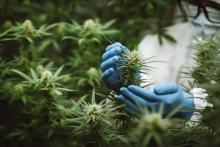
Investigating the ‘skunk’ smell and other emissions caused by cannabis production
February 15, 2022
What exactly causes that ‘skunky’ odour emitted by cannabis production facilities, and what do these emissions mean for air quality, workers, and the general public? We should address these and other knowledge gaps while the industry is still developing, according to a new study led… read more
-
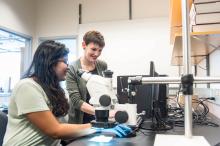
How UBC women in STEM are supporting each other to succeed
February 9, 2022
February 11th is the United Nations International Day of Women and Girls in Science.Role models for women in Science, Tech, Engineering and Medicine (STEM) are important: 2010 statistics in Canada show women made up 44 per cent of first-year STEM students aged 19 and under in undergraduate degree… read more
-

Funding bolsters tissue repair, spinal cord and chronic pain research at UBC Science
February 4, 2022
UBC researchers in Zoology, Chemistry and the Michael Smith Laboratories have received $6.12 million in research funding to investigate a range of health areas, including tissue repair, spinal cord injury and chronic pain. The fund was awarded today through the Canadian Institutes of Health… read more
-
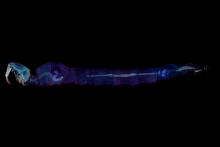
UBC zoologist solves the 100-year-old mystery of the floating phantom midge
January 26, 2022
In spring 2018, Dr. Philip Matthews spent a typical afternoon capturing dragonflies in the University of British Columbia’s (UBC) experimental ponds. Little did the zoologist know he was about to embark on a journey to solve a century-old entomological mystery involving a much smaller, but… read more
-
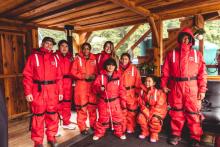
Salmon camps show youth Indigenous science at work
January 25, 2022
Imagine a summer camp where you can watch grizzly bears catch salmon in streams, while learning about the migration and preparation of the fish hovering in the water at your feet. Welcome to the Salmon Science Camp for Nisga’a youth, run by Dr. Andrea Reid (she/her), principal investigator… read more